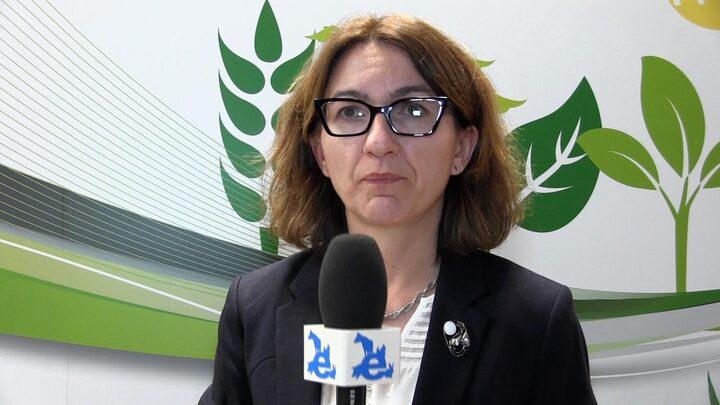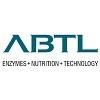Check out what is new in Poultry Industry
Find the best technical articles, forums, and videos on Poultry Industry at Engormix. Enter now and interact with the world's largest agricultural social network.
Background Biofortifications of chicken with bioactive nutrients such as DHA and calcidiol [25(OH)D3] have been viewed as an effective strategy to produce health-promoting meat for human consumption [1, 2]. Relatively low to moderate inclusion levels of calcidiol (1600 to 2800 IU/kg diet) [3, 4] and DHA-rich microalgal biomass or oil (0.55 to 2.55 g DHA/kg diet) [5–7] in broiler diets caused no negative effects on growth performance, lipid profile of tissues, or...
Comments : 0
Recommendations: 0
Q: Can you tell us how you arrived at the proposed optimal ratios and amounts of true digestible AAs in diets that you have developed in your research? A: Results of studies by my group have established the concept that animals have dietary requirements for not only...
Comments : 5
Recommendations: 5

Ewa Sujka shares her point of view about the trends in Organic farming production.
*Certain information associated with products, their composition and claims may be different depending on the geographical region and may not be applicable in all countries. Liptosa reserves the right to adapt to the requirements and legislation in each case.
The information and technical recommendations provided herein are based on Liptosa's current knowledge and experience.
Liptosa reserves the right to...
Comments : 1
Recommendations: 5
Conventional broiler (meat) chickens reach a final weight of 6.6 lbs (3 kg) in approximately 40-44 days. Across their lifetime, these fast-growing birds gain an average of 68-75 g per day, with daily gain increasing with age (Aviagen, 2022; Cobb, 2022). With their fast growth, however, they...
Comments : 0
Recommendations: 0
American and European companies are pledging to move to include slow-growing broiler chickens for production, which means they will use broiler chickens with less efficient growth rates in their production systems. Slow-growing strains show improved welfare outcomes compared to conventional ones. This newsletter...
Comments : 1
Recommendations: 0
by Sam Shafer
Poultry scientists offer an approach for more accurate predictions of immune system function in birds
New research suggests poultry breeders can boost immune system function in birds by updating their prediction models to include “non-additive” genetic effects. The new study, published in The...
Comments : 0
Recommendations: 0
by Sam Shafer
A new study of elevated plastic platforms vs. wooden planks suggests turkeys can balance better on the platforms and prefer platforms overall
Poultry scientists work to make sure animal housing is safe—and they research how housing updates might benefit bird health and welfare. For researchers in Switzerland, one important question is whether fattening turkeys (raised for their meat) might benefit from...
Comments : 0
Recommendations: 0
Featured comment:

mohammad aslam
As we replied earlier you need to enhance the nitrogen digestibility in the gut level more efficiently and there by depending on the substrates available in the poultry ration and through various biological studies these doses are recommended. In India, we use most protein sources from vegetative origin, only small percent of animal protein is formulated....
Comments : 19
Recommendations: 8
Featured comment:

Current Bird flu situation in Poultry Globally. Outbreaks of avian influenza (bird flu) among poultry occur periodically worldwide. 1. Development and spread of AI will be a key factor in the year 2023 globally. a) Global pandemic of AI will be challenging and need new strategies like Biosecurity and adaptation of vaccines to protect the industry. 2. The poultry industry continues to be resilient: - The industry faces many...
Comments : 1
Recommendations: 3
.jpg&w=3840&q=75)
The AMINONIR® services offer reliable nutritional analysis in a minimal time – even with unground raw materials. Hear what James Wen, Senior Technical Service Manager at Evonik Animal Nutrition has to say about it
...
Comments : 1
Recommendations: 5


Natural Remedies Standardized Botanical Powder (NRSBP™), a new concept in phytochemicals
Suggested link

Mr. O.P. Singh - MD, ABTL, shares his insights on ABTL as a nutrition and enzyme technology company offering pioneering products and technical services, and also on the 9th Kolkata International Poultry Fair 2023...
Comments : 1
Recommendations: 6

Stefan Eils, Director Sustainability Development at Evonik Animal Nutrition, discusses how Evonik is working on reducing the environmental impact of livestock operations around the world
...
Comments : 1
Recommendations: 1
.jpg&w=3840&q=75)
Emily Kimminau (Purina Animal Nutrition) discusses her research on different alternatives to fight this disease in poultry, during this Engormix interview....
Comments : 0
Recommendations: 4
.jpg&w=3840&q=75)
Mohammad Afrouziyeh (University of Alberta / Poultry Innovation Partnership) shares his recommendations and insights on water quality, as well as a new tool to control it, during this Engormix interview....
Comments : 3
Recommendations: 8
1. Introduction Aspergillus is soil fungal species that have been recognized as a major contaminant of different grains utilized for poultry diets [1]. They grow rapidly under high moisture conditions and produce biologically active hepatotoxic aflatoxins [2]. Maize, cereals like rice, wheat, pistachios, cottonseed, copra groundnuts, and many other feed stuffs are contaminated by these fungal species [3–5]. Aflatoxin actually covers three words in accordance...
Comments : 0
Recommendations: 1
Introduction Monogastric feeds are reliant on plant-based protein sources, like corn and soybean. However, increasing demands on these plant-based materials for non-food industries, such as biofuels, is also associated with an increase in the price of these feed ingredients, placing an impetus on the demand for these alternative protein sources (Leiber et al., 2017). Emerging areas of monogastric animal nutrition research include the use of insect meal, microalgae, single cell...
Comments : 1
Recommendations: 1
Introduction Mycotoxins are toxic secondary metabolites produced by fungi. They are unavoidable contaminants in foods and feeds, exerting harmful effects upon animal and human health 39 . The most important mycotoxins in naturally contaminated foods and feeds are aflatoxins (AFs), ochratoxins, zearalenone, T-2 toxin, deoxynivalenol and fumonisins 7,32 . Aflatoxin contaminated feeds are a severe threat to both livestock productivity and human health and cause...
Comments : 0
Recommendations: 1
Introduction The poultry industry aims to increase the breast weight of broilers due to its higher market price. However, the breast size is associated with meat conditions such as woody breast (Maharjan et al., 2021a), the body protein turnover (Maharjan et al., 2020a, Maharjan et al., 2021b) and lean mass weight (Martinez et al., 2020a), and changes in the partitioning of the dietary energy (Martinez et al., 2019a). These relationships can be influenced to favor production and...
Comments : 0
Recommendations: 0
Introduction In poultry, the net energy (NE) is the sum of the energy retained in the body and lost through heat production. Under its classic definition, the prediction of NE requires precise and accurate determinations of fasting heat production (FHP) and heat increment, which accounts for the energy production due to feeding, digestion, and the associated physical activity (Maharjan et al., 2021c). Then, the NE is indirectly obtained by sequential differences from the gross...
Comments : 0
Recommendations: 1
Introduction The global population is anticipated to reach around 10 billion people by 2050. At the same time the global middle-class is growing significantly particularly in high populous countries such as China and India. The combination of these two factors places significant pressure on global food systems which must be capable of providing food and nutrition security in 2050. The next 30 years are arguably one of the most critical transitions in human history as we approach a...
Comments : 1
Recommendations: 0









.jpg&w=3840&q=75)









.jpg&w=3840&q=75)






.jpg&w=3840&q=75)








